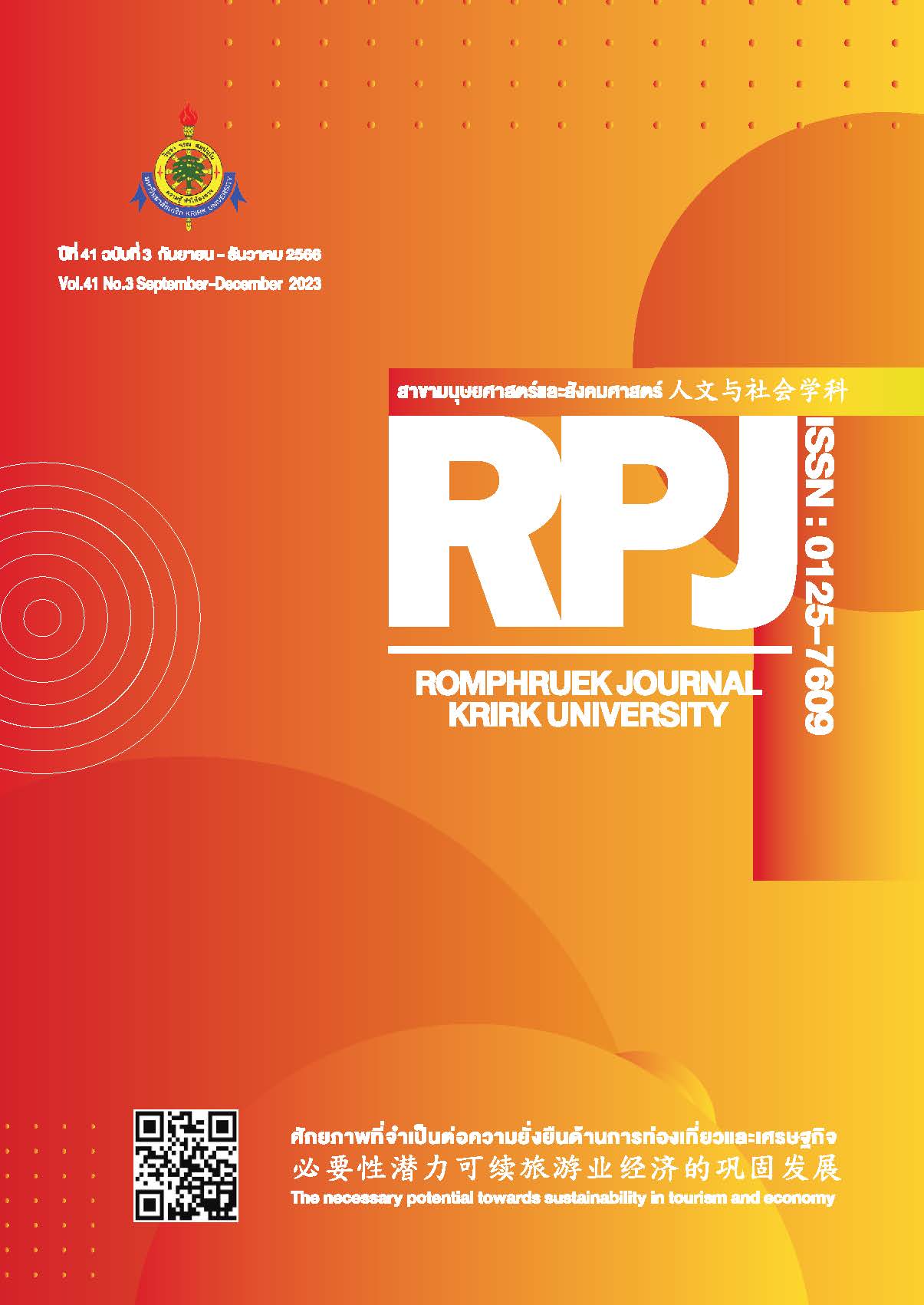A Community-Based Research: An Effort to Reduce Economic and Spatial Inequalities in the Urban Poor Community
Main Article Content
Abstract
This article aims to reduce social inequalities by developing indicators, collecting, and analyzing data through the research entitled “The Potential Development Process in Producing and Processing the Products of the Community Agricultural Garden by the Community Participation of Poonsap Community, Sai Mai District, Bangkok”, using the process of the Community-Based Research (CBR). The researchers worked with researchers from the Knowledge Network Institute of Thailand and community researchers to develop the indicators and design the survey form for data collection from community researchers prior to and after their participation in the Poonsap Community’s community-based research project. This was to demonstrate how the economic and spatial inequalities were diminishing.
The findings revealed that the area of Poonsap community agricultural garden had become a community food source assisting in the reduction of their expenses. On the other hand, it contributed to an increase in household income among the agricultural garden members, resulting in a reduction of economic inequality. As a result, the community members had access to safe food, and no longer need to purchase vegetables from outside sources. Members of the agricultural garden could set their own prices and handle product processing. Instead of going through the middleman, they could sell directly to customers. In addition, they could add value to agricultural garden products and processing processes. In terms of reducing spatial inequality, the community members had the rights and the access to safely participate in agricultural garden activities in the area. It enabled them to take part in group initiatives that required them to listen to the viewpoints of others, and to foster the peaceful cooperation.
Article Details

This work is licensed under a Creative Commons Attribution-NonCommercial-NoDerivatives 4.0 International License.
Every article published in the Romphruek Journal of the Humanities and Social Sciences is the opinion and point of view of the authors. Thery're not the viewpoint of Krirk University or the editored department. Any part or all of the articles for pablication must be clearly cited.
References
โกวิทย์ พวงงาม. (2553). การจัดการตนเองของชุมชนและท้องถิ่น (พิมพ์ครั้งที่ 1). บพิธการพิมพ์.
ธัชชนันท์ อิศรเดช และวสันต์ ลิ่มรัตนภัทรกุล. (2563). ชุมชนกับการจัดการปัญหาความเหลื่อมล้ำเพื่อการพัฒนาที่ยั่งยืนกรณีศึกษาชาวตำบลหนองสาหร่าย. Journal of Social Science and Buddhistic Anthropology, 5(11), 375-388.
บัญชร แก้วส่อง. (2560, 6 มิถุนายน). หนึ่งชุมชนหนึ่งงานวิจัย: การเตรียมคนฐานรากเพื่อเข้าสู่เมืองไทย 4.0. งานวิจัยเพื่อท้องถิ่น. https://vijaitongtin.wordpress.com/.
ปิยะพงษ์ บุษบงก์. (2562, 5 มีนาคม). เกษตรในเมือง ความสำคัญ ความท้าทายสู่เป้าหมายเมืองยั่งยืน. สวนผักคนเมือง. https://thaicityfarm.com/.
ผาสุก พงษ์ไพจิตร.(2556). ภาพรวมความเหลื่อมล้ำกับความขัดแย้งในความเหลื่อมล้ำและความไม่เป็นธรรมในการเข้าถึงทรัพยากรและบริการพื้นฐานของประเทศไทย(พิมพ์ครั้งที่ 1). ภาควิชาการวางแผนภาคและเมือง คณะสถาปัตยกรรมศาสตร์ จุฬาลงกรณ์มหาวิทยาลัย.
วรภัทร วีรพัฒนคุปต์. (2564, 25 พฤษภาคม). ความเหลื่อมล้ำ-ประชาชนกลุ่มเปราะบาง-สิทธิมนุษยชน.สมาคมสิทธิเสรีภาพของประชาชน. http://ucl.or.th.


